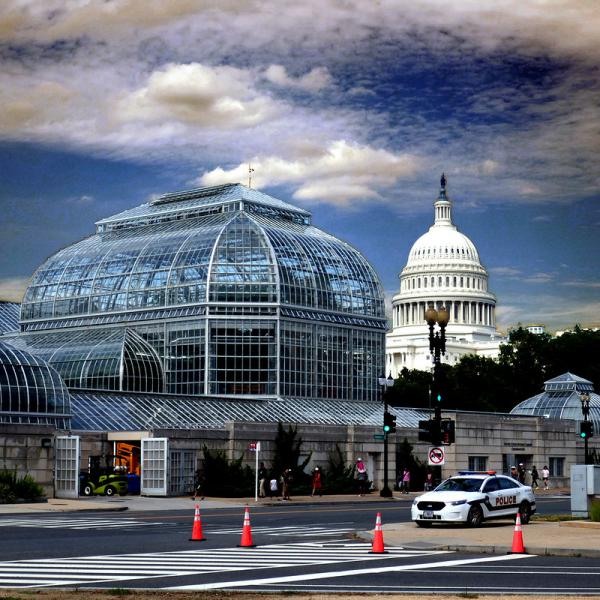
The top priority of Congressional Democrats is H.R. 1, an 800-page bill filled with partisan policies to rig the system in favor of the Left. Along with politicizing the FEC, chilling free speech, and unconstitutionally invalidating state election laws, H.R. 1, the “For the People Act,” also provides taxpayer-funding for political candidates.
This provision of the bill would create numerous opportunities for corruption and would force taxpayers to fund campaigns that they disagree with.
Additionally, at a time when millions are out of work and the federal government has spent trillions of dollars more than it has, it is irresponsible at best to put taxpayer money towards political campaigns.
The legislation implements a 600% match for certain political contributions to congressional and presidential candidates, forcing taxpayers to subsidize political campaigns. In addition to being a poor use of taxpayer money, this attempt to end political corruption actually creates greater opportunity for corruption.
The idea behind taxpayer-funded campaigns is that they would reduce corruption. If candidates don’t depend on special interests for funds, they would not be vulnerable to pressure from those special interests once in office.
In reality, taxpayer-funded campaign measures open the door to new kinds of corruption while existing means of corruption still stand. Institute for Free Speech analyses of longstanding tax-financing programs in Arizona, Maine, and Connecticut found that these schemes “fail to reduce special interest influence, fail to reduce the dominance of businessmen and lawyers in politics, fail to increase the number of women elected to legislatures, fail to change legislative voting behavior, fail to make elections more competitive, and fail to increase voter turnout.”
Provisions like this have been abused in the past. For instance:
- An Arizona Congressional candidate took over $100,000 in public match funds and spent it on nightclubs, vehicle rentals, and restaurants. Instead of returning the entirety of the funds he stole, he only had to return $15,000.
- In New York City, former city council member Sheldon Leffler was convicted of attempting to break up a $10,000 donation to take advantage of NYC’s public matching program. Similarly, a city council candidate was convicted of spending $17,223 in public matching funds for personal expenses like groceries, restaurants, and gas.
- Again, in New York City, “one candidate was convicted of accepting bribes, extorting money, and other questionable behavior that netted him approximately $200,000 in “illegal rent, expenses and payoffs” – including extorting a Bronx boiler company executive who collected a $283,000 Yankee Stadium contract with his assistance,” as the Institute for Free Speech details.
This policy will not prevent corruption from happening. This is particularly true because the bill allows politicians fairly broad discretion in how they spend the funds they receive. Simply, the funds must be spent “in connection with the candidate’s campaign for such office.” Instead of preventing corruption, it will just force taxpayers to pay for it this time.
This leads into a point that Thomas Jefferson once made: “To compel a man to furnish funds for the propagation of ideas he disbelieves and abhors is sinful and tyrannical.” In this way, it could be described as compelled speech. Especially because it will almost certainly propagate one political party (the Democratic party) over the other upon implementation.
Taxpayers should not be forced to fund campaigns they find disagreeable. In fact, they shouldn’t be forced to fund campaigns they agree with. Americans’ ability to choose to or refuse to participate in politics has always been a foundational principle in the United States.
Finally, the CBO has estimated that, in the next 10 years, tax-financed campaigns will cost taxpayers $2 billion.
Bloomberg noted that each eligible congressional candidate would qualify for nearly $5 million each in federal matching funds under this law. For reference, Rep. Alexandria Ocasio-Cortez, whose race was the second most expensive House race in the country, raised $17.3 million for her 2020 race. Under H.R. 1, she’d be eligible to receive 29 percent of what she had raised in additional funds.
Overall this measure is an incredibly irresponsible use of money during a time when millions of Americans are unemployed and we are almost $28 trillion in debt.
Tax-financed campaigns are an ineffective “solution” to a much deeper problem in the United States. The only real way to root out corruption is to remove the incentive for corruption: in other words, to limit the immense power the government has over the economy and the American people.

